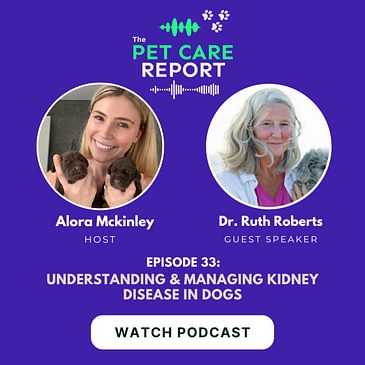In this episode of the Pet Care Report, host Alora McKinley speaks with Dr. Ruth Roberts, a pet health expert and host of Pet Summit's Holistic Dog Summit. They delve into kidney disease in dogs, exploring its causes, symptoms, and the impact of diet, particularly the risks of dry kibble. Dr. Roberts highlights the importance of hydration, balanced diets, and omega-3 supplements for kidney health. She also challenges conventional low-protein diet advice, advocating for tailored nutritional approaches based on a dog’s specific health needs.
Show Notes:
(00:50) Understanding Kidney Disease in Dogs
(01:14) Interview with Dr. Ruth Roberts on Managing Kidney Disease
(02:01) The Basics of Kidney Function and Disease Indicators
(03:57) Risk Factors and Types of Kidney Disease in Dogs
(07:21) Management Strategies for Dogs with Kidney Disease
(11:34) Nutritional Considerations for Dogs with Renal Issues
(18:23) Supplements and Treats for Dogs with Kidney Disease
(26:38) Final Thoughts and Where to Find More Information
Follow Dr. Ruth Roberts at:https://drruthroberts.com
https://www.facebook.com/crockpetdiet
https://www.instagram.com/dr.ruthroberts/
https://www.linkedin.com/in/dr-ruth-roberts-72473970/
Follow our Dog Health Host, Alora Mckinley, at https://www.instagram.com/centerfyr_gsp
Want to see more from Pet Summits? Subscribe to the PetSummits YouTube channel here: https://www.youtube.com/@PetSummits
Check out the latest free events here: https://petsummits.com/events/





